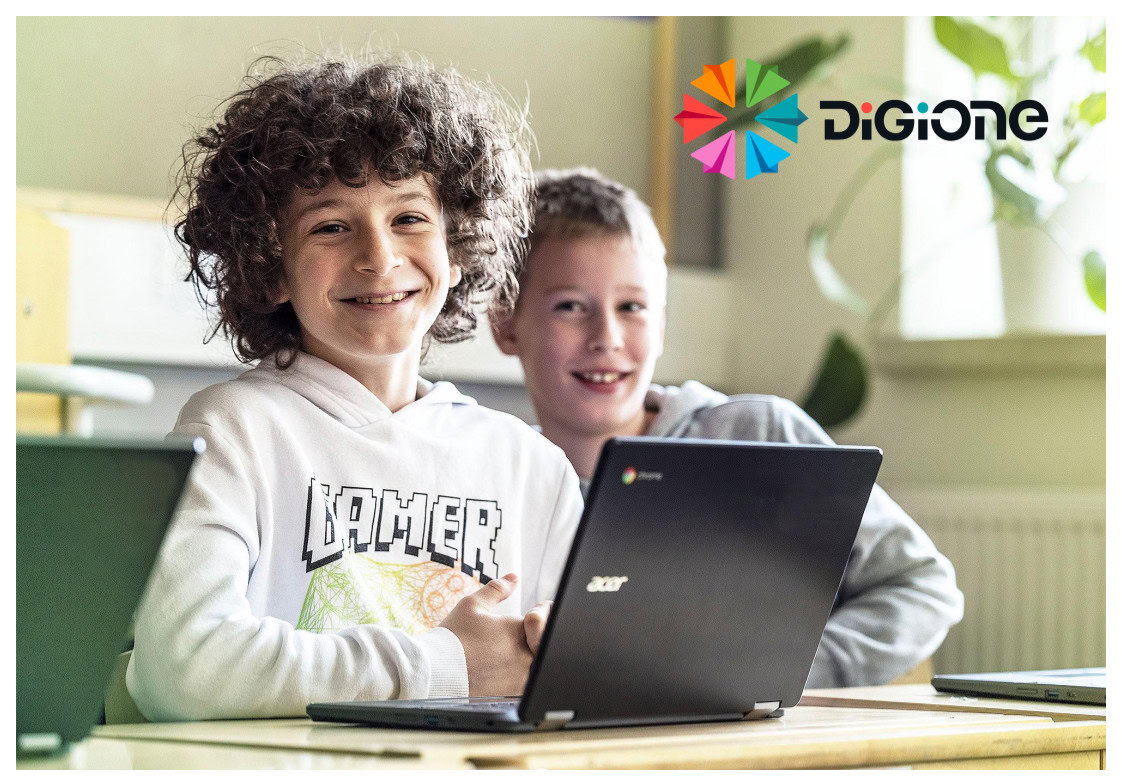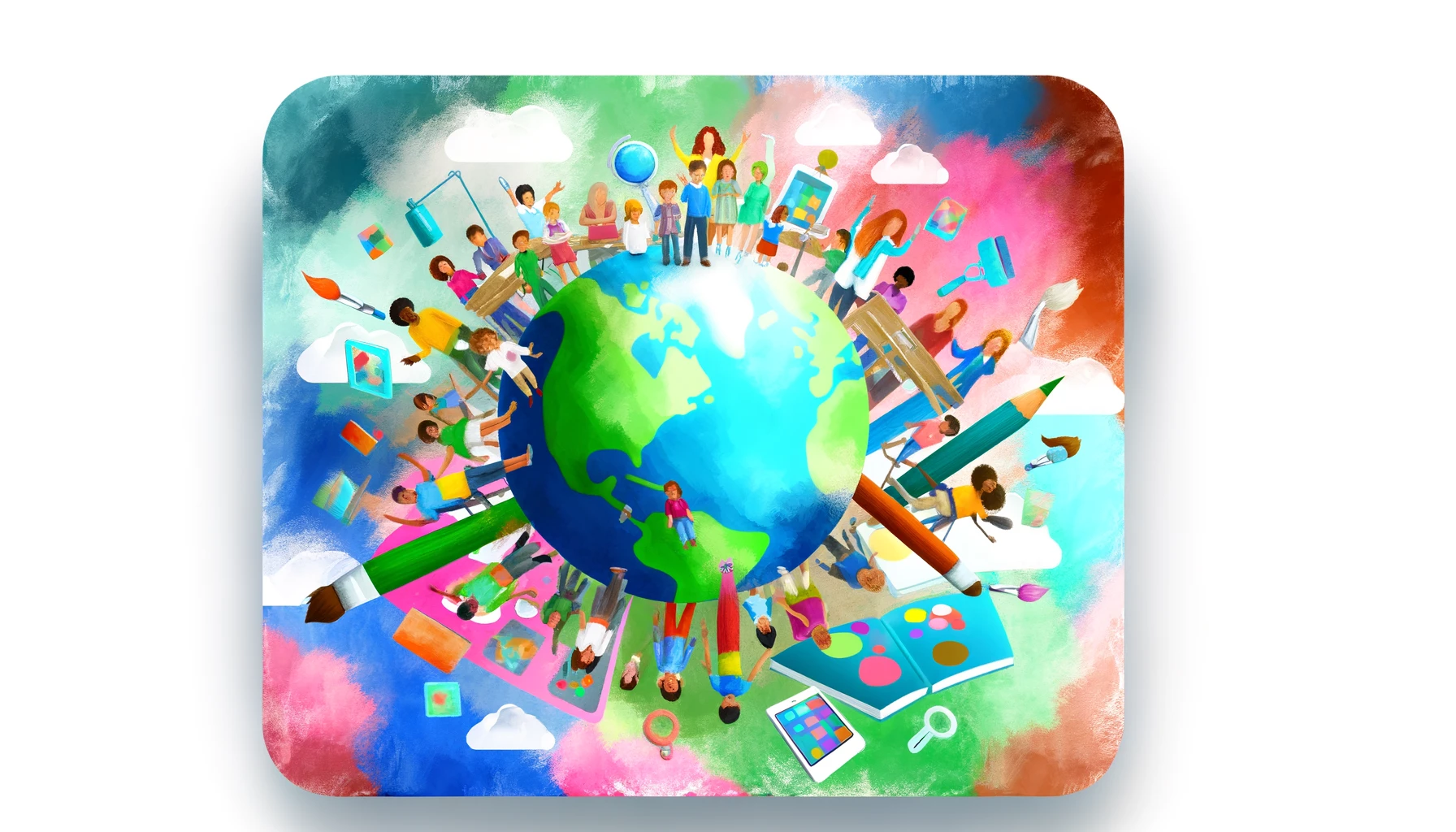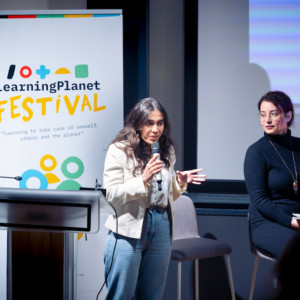World Teachers’ Day is back, as always, on 5 October! On this occasion, we aim to celebrate inspiring teachers around the world, whose work deserves to be highlighted. In this article, meet Edson from Zimbabwe, whose goal is to collectively equip learners and communities with skills, tools and mindsets, thereby creating resilience.
We met Edson through the Teachers for the Planet Programme, a global coalition co-led by the Aga Khan Foundation, Learning Planet Institute and Teach For All, which witnesses inspiring examples of outstanding educators all around us. It puts teachers and education leaders at the centre of the educational response to our climate crisis.
Are you an exceptional educator like Edson, working to address the climate crisis in your school? We are now collecting solutions, 100 of which will be presented to policymakers at COP28.
What are your sources of inspiration?
My primary source of inspiration is my learners. They are unique in their own right and have their own talents, potential, and strengths. Every time I visit the classroom I actually witness their growth, progress, and achievements and this motivates me and serves as a constant reminder of the impact I have on their lives.
The community I work in, mentors, personal values and beliefs are also other sources of my inspiration. Engaging with families and local leaders has helped me to understand the challenges and aspirations of the community and this has motivated me to make a positive difference. Reflecting on my personal values and beliefs about education and social justice has also served as a powerful source of inspiration. Teaching in a marginalised community helped me to realise the positive impact I can have; it then fuelled my motivation and drive to overcome challenges turning them into opportunities thereby making a meaningful difference in the lives of my learners.
How do you involve kids on topics that are important to you?
Well, it’s essential to engage learners in topics that are important to me in a way that is meaningful, relevant and respectful of their experiences and perspectives. I incorporate learners’ cultural backgrounds, experiences and interests into my teaching. The majority of my lessons and activities are designed from their lived experiences and connect with their communities.
This helps the kids see the relevance and importance of the topics I want to discuss. I always relate to real-life situations; for example. if I want to discuss environmental conservation, I focus on local environmental issues like deforestation and stream bank cultivation and how they affect them directly.

By connecting the topic to their everyday lives, you can increase their engagement and interest. I also include a lot of hands-on activities that allow active participation of learners; these include field trips, experiential learning and community visits. These also promote critical thinking and problem-solving techniques.
What’s the best advice your students have given you?
They personally told me that we appreciate education when our teachers incorporate our cultural backgrounds, histories and perspectives into teaching. Kids value learning materials, examples and discussions that reflect their own lived experiences and diverse cultures. They said this helps them feel connected to the content and increases their engagement.

What are your main challenges as a teacher?
Some of the challenges as a teacher in a marginalised community include limited resources for instance inadequate funding for schools, lack of teaching materials, outdated technology and insufficient infrastructure. These resource constraints make it challenging to provide quality, holistic education and meet the diverse needs of learners. Despite these challenges, I often demonstrate resilience, creativity, and a deep commitment to my learners’ success. I always find innovative ways to overcome the obstacles and make a positive impact.
How does teacher shortage affect you in your daily working life?
Teacher shortage usually results in larger class sizes and a higher learner-to-teacher ratio. With more learners to manage, this increases my workload, and I find it challenging to provide individual attention and support to each learner. This sometimes has led to additional stress and time constraints in planning lessons, grading assignments and addressing learners’ diverse needs.
Do you feel valued as a teacher? Why? Why not?
In my context yes, I feel valued, because my contributions are recognised and supported by the school and community. I also receive positive feedback, involvement, and collaboration from the community and local organisations this reinforced my sense of value and significance in the community.

How do you think the teaching profession could be better valued?
To better value the profession it is important to recognise and address the specific challenges and opportunities that exist. There is a need to raise awareness and appreciation for the vital role teachers are playing in shaping the future of learners and the community. Let’s celebrate teacher achievements through local media, community events, and recognition programmes that can help foster a culture of appreciation. Another idea is to offer career advancement pathways to teachers; this can be opportunities for leadership roles or mentorship programmes. Last but not least, we must create a supportive environment for teachers’ opportunities for collaboration with colleagues.
How do you think the teaching profession could be better supported?
It can be better supported by addressing the unique challenges that are faced by teachers due to their location and circumstances, for example, providing adequate resources like teaching materials, technology, and internet connectivity. Rural teachers face isolation and limited access to professional development opportunities. There must be provision of refresher workshops, tailor-made to their needs. At the end, this will enhance their teaching skills and keep them updated on the latest pedagogical approaches and subject knowledge. The strategies to support the profession must be context-specific and responsive to the unique needs of teachers. Collaborative efforts involving governments, education authorities, communities and relevant stakeholders are essential for sustainable support for the teaching profession.
From whom do you receive the most support? (families, institutions, colleagues, kids…)
My support personally comes from immediate family members, colleagues and the community.
Meet Edson

Edson Dongo is a teacher, mentor, alumni manager and climate change lead at Teach for Zimbabwe with 10 years of experience. He started conservation and environmental clubs in schools educating learners and communities about environmental stewardship. Edson is now using the vast experience to collectively equip learners and communities with skills, tools and mindsets thereby creating resilience. He is passionate about bringing climate change education to learners and community at large.



